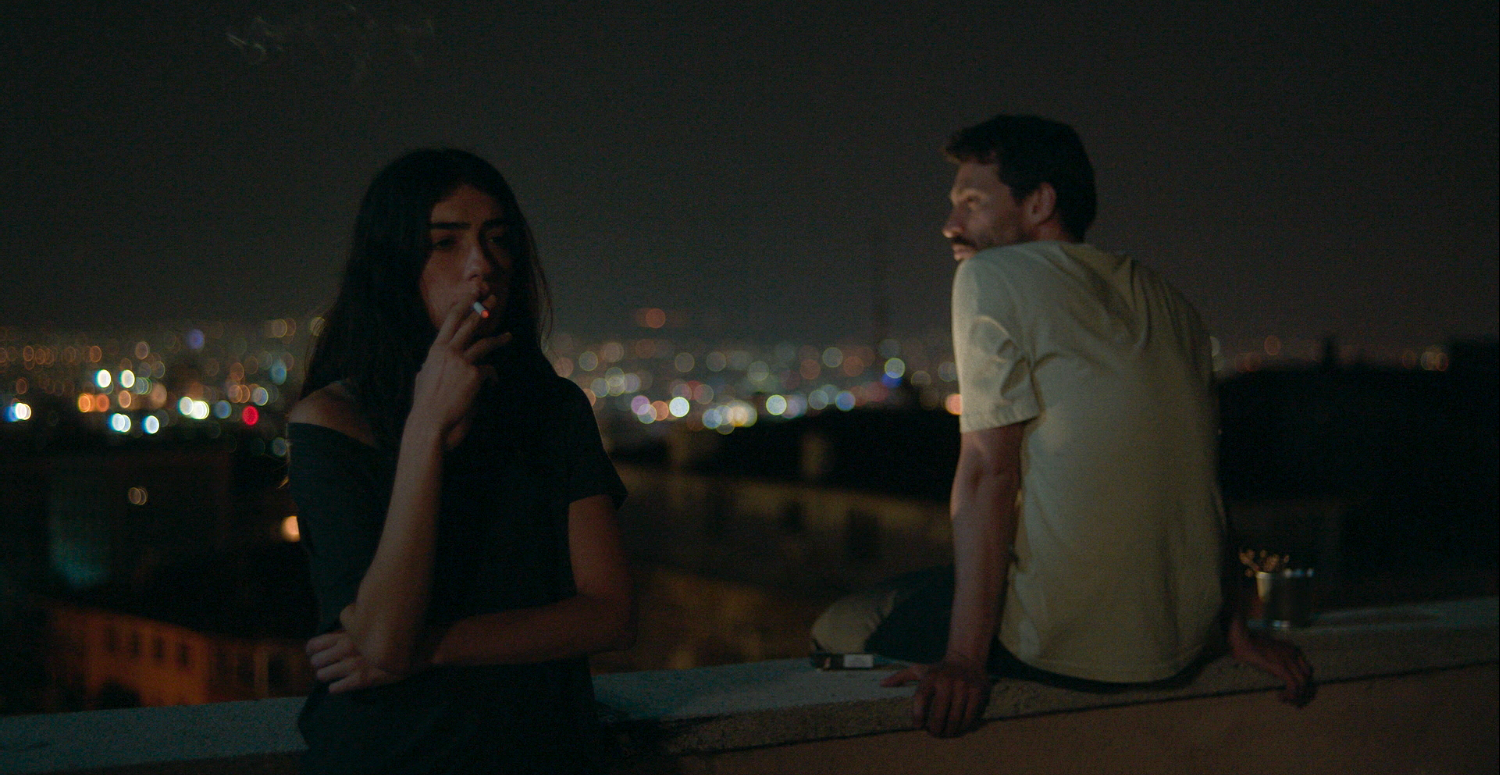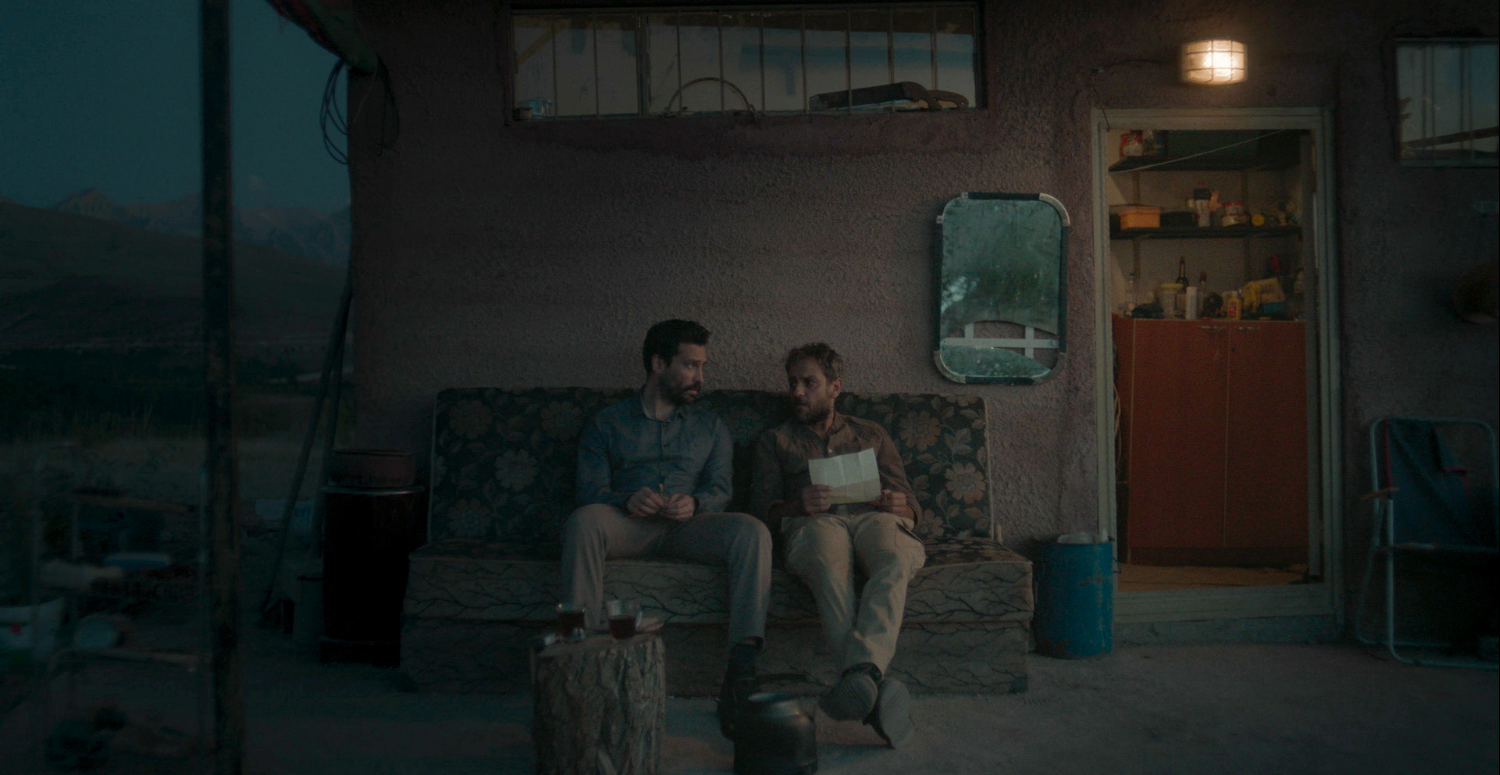The Things You Kill
Öldürdüğün Şeyler
Best Directing (World Cinema) – Sundance
Prix du Jury – Reims Polar
2025

FR EN
Dans le très ingénieux et implacable « Chroniques de Téhéran », co-réalisé par Ali Asgari et Alireza Khatami, un cinéaste nommé Ali soumettait une énième fois son scénario à la censure religieuse iranienne pour le voir à nouveau refusé sous prétexte de ne pas respecter suffisamment l’homme et le père dans ce film intitulé … « The Things You Kill » !
Alireza Khatami, désormais expatrié, exile ainsi son nouveau film en Turquie, étant lui-même originaire d’une famille turcophone d’Iran, pour mener à bien son désir de faire la peau au patriarcat dans un scénario qui ne reflète pas que la société iranienne ou turque. C’est un drame familial qui se mue en thriller psychologique dont le protagoniste – un professeur de littérature comparée qui a fait ses études à l’étranger – s’enlise dans une violence systémique d’un patriarcat dont il croyait s’être libéré par l’exil. Mais si ce passionnant polar montre bien sûr une société malade, il filme pour une fois le patriarcat non pas sous l’angle de ce qu’il inflige aux femmes, mères et filles, mais bien aux fils. Parfois sinueux et confus, ce film d’inspiration lynchienne, nous happe par son atmosphère captivante et sa mise en scène perturbante.
Si l’intrigue en elle-même n’est pas si complexe, la mise en scène y ajoute en effet des éléments troublants qui en font un véritable puzzle cinématographique à la fois surprenant et incertain notamment via une mutation inexpliquée et inapparente qui questionne le spectateur tout au long d’une seconde partie hautement symbolique. La mise en scène s’appuie ainsi sur une belle photographie, de beaux cadres et des plans fixes soignés pour jouer sur les miroirs et nous interroger sur la dualité de nos personnalités et l’inconnu qui se trouve en nous. Cela passe notamment par un jardin en partie métaphorique, voire entièrement allégorique, et un ouvrier agricole au prénom jumelé qui s’impose de plus en plus comme un recours inattendu lorsque les événements familiaux se compliquent.

À travers une idée très forte, ce choix de mise en scène pour le moins atypique et déconcertant, « The Things You Kill » décortique les tréfonds de l’âme humaine en bouclant parfaitement la boucle sur son jeu de miroirs et de rêves : serait-ce son exutoire mental refoulé … ou a-t-on réellement bien vu ? Si son précédent film était plus social et sociétal, celui-ci s’avère beaucoup plus psychologique et introspectif, mais nous marque tout autant par son choix de forme et confirme la patte singulière de ce réalisateur !
Raphaël Sallenave
In the very resourceful and compelling “Terrestrial Verses”, co-directed by Ali Asgari and Alireza Khatami, a filmmaker named Ali submitted his script for the umpteenth time to Iran’s religious censorship, only to have it rejected once again for failing to show sufficient respect for the man and the father in this film entitled … “The Things You Kill”!
Alireza Khatami, now living on foreign soil, is thus bringing his new film into exile in Turkey, as he himself comes from a Turkish-speaking family in Iran, in order to fulfill his desire to give patriarchy a run for its money in a script that doesn’t just echo Iranian or Turkish society. This is a family drama that turns into a psychological thriller whose protagonist – a professor of comparative literature who studied abroad – becomes entangled in the systemic violence of a patriarchy from which he thought he had freed himself through exile. But while this gripping thriller does of course show a sick society, for once it looks at patriarchy not from the angle of what it does to women, mothers and daughters, but to sons. At times meandering and confusing, this Lynchian-rooted film draws us in with its captivating atmosphere and unsettling staging.
If the plot itself is not all that complex, the staging adds troubling elements that make for a real cinematic puzzle that is both surprising and unclear, especially through an unexplained and undetected mutation that questions the viewer throughout the highly symbolic second half. The cinematography relies on beautiful photography, elegant frames and carefully crafted still shots to play with mirrors and question the duality of our personalities and the unknown within us. This is achieved through a garden that is partly metaphorical, if not entirely allegorical, and a farmhand with a paired first name who increasingly becomes an unexpected source of refuge when family events get tough.
With its powerful idea and atypical, disconcerting staging choice, “The Things You Kill” delves into the depths of the human soul, perfectly coming full circle with its play of mirrors and dreams: could this be his repressed mental outlet… or did we really see things right? While his previous film was more social and societal, this one is much more psychological and introspective, but its staging approach is just as striking, demonstrating once again this director’s singular style!
Raphaël Sallenave

